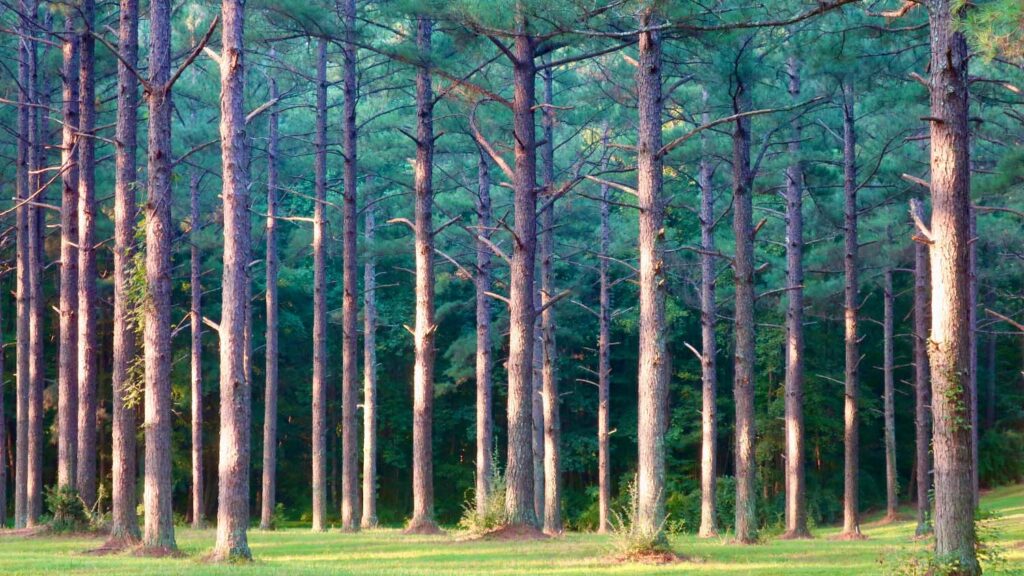Forest Management

Since its establishment, Schenck Forest has been managed by NC State’s College of Natural Resources as a teaching and research site where students learn about forest management and the associated benefits: forest health, recreation, timber measurements, water quality, wildlife habitat, carbon sequestration and more.
The forest manager’s job is to ensure that Schenck Forest meets its educational and research objectives, remains a sustainable working forest, increases in plant and animal diversity, and provides a safe recreational destination for the surrounding community.
The forest hosts multiple classes and active research projects, including tree growth, genetics, hydrology, soils, wildlife and habitat monitoring, forest measurements, forest ecology, mycology, botany, dendrology, military training, health and fitness training and other classes. It also hosts the NC State Forestry Club, which organizes an annual collegiate timbersports competition.
Our team commits a lot of planning, labor, time and funding into managing Schenck Forest — a process that’s complicated due to the forest’s urban location and the fact that it’s equipped with few amenities. At Schenck Forest, silvicultural treatments vary depending on the previous site conditions and the desired species composition and density of the subsequent site. Reproduction harvest methods are primarily conducted by regeneration harvest ((clearcutting), selection harvest, seed tree harvest, and shelterwood harvest or similar variations.
Forest management and silviculture practices include:
- Site preparation
- Reforestation
- Fertilization
- Prescribed burning
- Forest thinning
- Pesticide/herbicide application
- Trail maintenance
- Mowing
Examples of the practices applied at Schenck Forest:
- Site preparation
- Reforestation
- Fertilization
- Prescribed burning
- Forest pre-commercial and commercial thinnings
- Herbicide
- Pine species comparison plantings
- Bottomland hardwoods plantation
- Modified shelterwood
- Seedtree
- One-aged, two-aged and uneven-aged management
- Trail and road maintenance
- Mowing
- American woodcock management
- Dry piedmont longleaf pine community
Click here to learn more common forestry terminology.